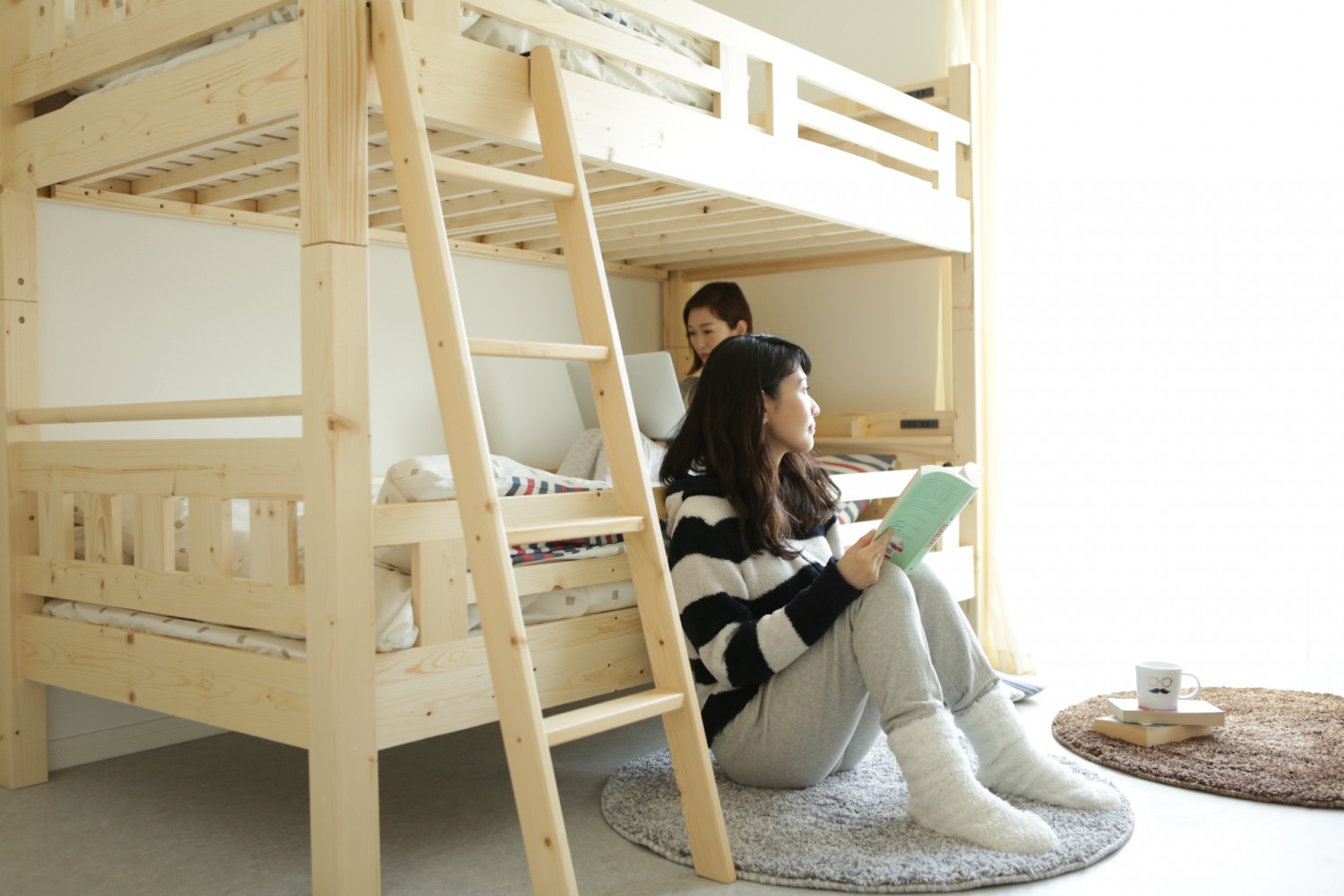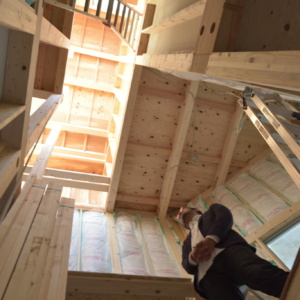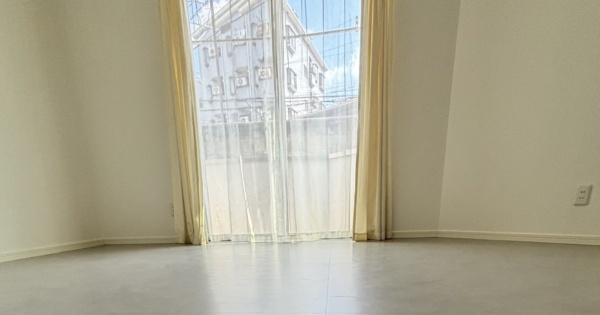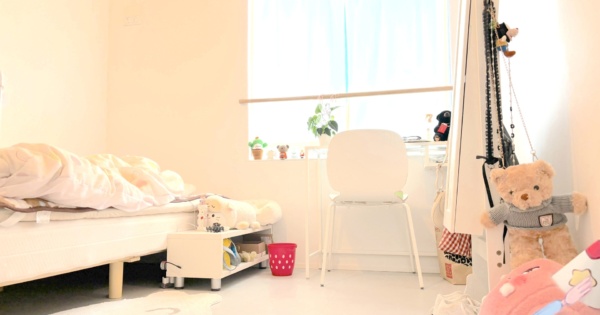Hello! I know this is sudden, but have you ever heard of a dormitory? There are two main types of rooms in share houses: private rooms and dormitories. One is a private room, and the other is a dormitory.
In this article, I’ll be giving a thorough explanation of the merits and demerits of dormitories, having lived in a dormitory for two years in the past.
So let’s get started!
Table of Contents
- What is a Japanese dormitory
- Good points
- Bad points
- Tenants’ voices
- Summary
1. What is a Japanese dormitory?
To put it very simply, it is a “shared room. You share the same room with someone you don’t know. *Of course, you will be sharing with someone of the same gender.
If you’ve ever been to a guesthouse (hostel) or watched “Terrace House” on TV, you may have an idea of what I’m talking about.This is the room with bunk beds in the room.
 SEN OSAKAにもドミトリーあります。
SEN OSAKAにもドミトリーあります。
In a share house, even if you have a private room, you share all the common spaces such as the living room, kitchen, and bathroom like a big family, but in a dormitory, you also share the bedroom. I’m sure there are many people who shared a room with their siblings when they were growing up. Yes! That’s it! If you imagine a room like that, you’ll get the idea. ←I just thought of a good analogy!
2. Good points
【Chance to make a lifelong best friend!】
By the way, I met an irreplaceable friend when I lived in a dormitory for two years in Australia.
Saki, a former staff member, also met someone at the dormitory who became her best friend.
【体験談】シェアハウスは人生を変える?!~ドミトリーの相棒編〜
We also became roommates in TESEN’s share house, which led us to travel abroad together, and some of us even went to study abroad together!
【You will gain the strength to accept it】
As a dormitory, you will naturally have a roommate.
“As Masayoshi Yamazaki and SMAP used to say, “You don’t have to like each other because you come from different backgrounds.As Masayoshi Yamazaki and SMAP said, your roommate is a stranger who you’ve never met or talked to before yesterday. At first, you may be confused about each other’s values, but you will naturally develop the ability to accept each other. You will meet more wonderful cultures and values than you could ever imagine.
【Good value】
Whether you’re in a dormitory or a private room, you’ll be sharing the same space in the living room and other common areas. If you think about it, isn’t it a great deal?
3. Bad points
The following is a list of disadvantages, or points to keep in mind when moving into a dormitory.
・Do you and your roommate have a similar lifestyle?
・Do you have enough space to store your belongings?
These two points are important. If you and your roommate have different rhythms (lifestyles), you may come home just when you’re about to go to sleep, and you may not be able to sleep because of the noise. (Many people get used to this after the first couple of days.) So be sure to ask the management company what kind of roommate you’ll be getting when you visit! Another important thing to consider is whether or not there is enough space to store your luggage. Many people who move into dormitories are minimalists, but sometimes there are people who have their luggage all over the room, taking up the whole room… When you visit the dormitory, make sure to ask the management company how much space you have for your luggage.
4. Tenants’ voices
Here are some reviews from people who have moved into the SEN OSAKA dormitory.
5. Summary
You have to be used to living in a share house, right? I often hear people say, “I’m too nervous to share a room with other people. However, I’m sure there are many people who shared a room with their siblings, parents, or mothers in the past, so if you think about it that way, the hurdle to dormitory living may be lowered. And although it may seem surprising, there are a lot of people who choose to live in a dormitory for the first time in a share house! Especially for those who want to experience a variety of values and cultures, dormitories are a great choice.







Leave a Reply